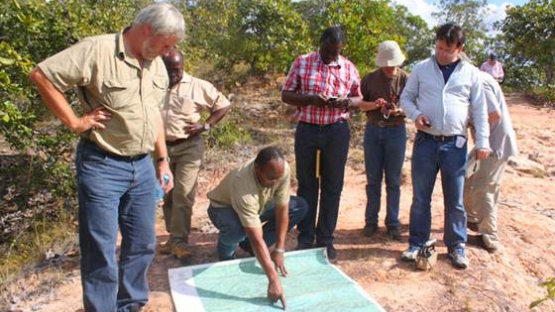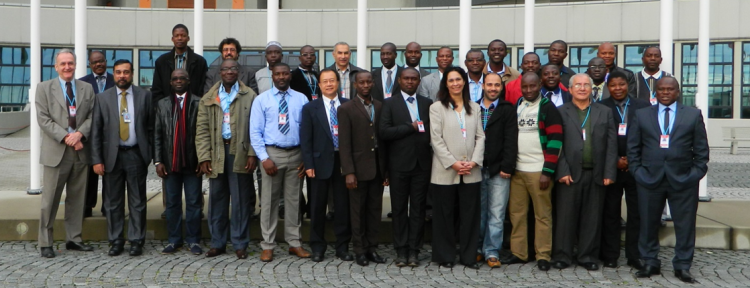Africa supplies some 20% of the world's demand for uranium, and some estimates expect this share, and the overall production tonnage from the region, to increase markedly in the next 20 years. Already, Niger and Namibia occupy fourth and fifth positions in the ranks of global producing countries, and Niger has nearly 50 years of continuous experience in successful uranium mining. Some 20 countries in the region are in the process of assessing the potential socio-economic contribution which uranium and related energetic minerals, such as rare earths and phosphates, can make to sustainable development over the medium- and long-term.
Project leaders from across the African region gathered at the first ever Leadership Academy workshop on sustainable uranium production to discuss and exchange experiences concerning the qualities of effective leaders and how these qualities can decisively affect the success or failure of projects in uranium exploration, mining and processing. Held in Vienna from 15 to 19 December 2014 under an IAEA regional technical cooperation project, they discussed key leadership issues: What makes an effective leader? Is it the power to command, or the art to persuade? How are successful projects managed? Is it by force of will or by patient team-building and the skills of negotiation?
There was broad agreement that human resources are the key to successful management. Analyses of the reasons why mining projects under-perform show that management inexperience and weaknesses are more common causes than lack of technical expertise or inadequate finance.
In many cases, as the participants pointed out, promotion into leadership roles was typically on technical merit, but little or no training in leadership or management skills came with the promotion. "I had to teach myself," commented one, "and it was very hard." Communication skills are also vital, whether with decision-makers, the project team or with stakeholders and the wider public. "Many of the problems we have encountered, including resistance to uranium mining itself, come down to communication failures," commented another participant.



